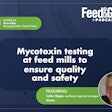
Current definitions of health and wellness reflect consumer attitude changes toward diet and exercise.
Among the practices that U.S. consumers consider part of a healthy lifestyle are eating right (26%), exercise (18%), managing stress (19%) and sleep (18%).
Gen Z and Millennial consumers who seek plant-based alternatives want them to be organic, locally sourced, and unprocessed, and are looking for products that offer health benefits such as fiber, whole grains and antioxidants.
Traditional soyfoods such as tempeh are a good match for global diet trends because they offer a combination of probiotics, fiber and high-quality plant protein. Additionally, new products such as shelf-stable fortified tofu hold appeal for nutrition-conscious shoppers.
According to a report fromUSSOY.org, health, diet and exercise trends that are likely to affect demand for soyfoods could include:
- Health and Fitness Boom:The rise of health and fitness concerns has the potential to boost opportunities for U.S.-grown soy — everything from sports nutrition products to the food choices that consumers make based on their ideas of wellness. Among Americans who say they would eat plant-based meat for healthfulness, for example, the top attributes they seek are high quality/complete protein, heart health and protein content.
- Appetite for Sports Nutrition Products:With the rising interest in preventive medicine, fitness, and self-care, it is not surprising that the global sports nutrition market — valued at $10.7 billion in 2020 — is expected to expand at a compound annual growth rate (CAGR) of 10.9% from 2021 to 2028. Expanded fitness activities are projected to drive consumption of supplements, such as soy-based sports nutrition products, that are intended to support muscle growth and improve athletic performance.
- Emphasis on Sustainability:Personal health and sustainability are currently among the top considerations that drive consumer food choices, with concerns for the health of the planet now eclipsing personal health concerns. Plant-based product introductions showed a 59% increase from August 2020 to August 2021.
Read the full reporthere.





















